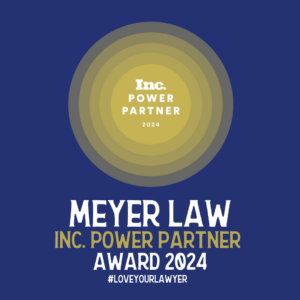(This is the second part of a six part series. The first part can be found here.)
In this second part of a six part series on the five things you need to know, and do, when starting a business, we will explore how to set up a business by exploring the various entity types, and the pros and cons of each.
To recap, a business entity is simply the organizational structure you chose for your business – how many people are involved, their position and role within the company, etc. The entity type you choose will also determine how the business is taxed, and the level of personal liability exposure you will have. The entities we will look at are sole proprietorships, partnerships, limited liability companies (LLC), and corporations.
A sole proprietorship, as the name implies, is a business entity made up of one person. Sole proprietorships are the easiest and least expensive to set up. The only things you need to do to get started are: check with your local government to determine requirements for a business license, set up a separate business bank account for accurate accounting purposes, and file a fictitious business name statement (also known as a DBA – “doing business as”), and that’s it!
With regard to filing a DBA, you only need to do this if your business name is different from your full legal name. For example, if your name is John Smith and you are starting a pool service, John Smith’s Pool Service would not require that you file a DBA, but Sparkling Clean Pool Service would. A sole proprietor pays personal income tax on the profits of the business, and, as a self-employed individual, self-employment tax.
A major drawback of a being a sole proprietor, is that you are provided no liability protection for claims against the business. As you and the business entity are one and the same, you bear full responsibility for any legal actions or judgements, debts, or tax related claims brought to the business. If you are starting a business that has a high liability risk, you should strongly consider another entity type.
A partnership is a business entity involving two or more people. While there are different types of partnerships, we will focus on the main two – general partnership and limited partnership. A general partnership is similar to a sole proprietorship in that it is easy to set up. As with a sole proprietorship, a DBA and business license may be required. There are typically no additional special documents to file, although local requirements can vary.
While not required, it is strongly suggested that the partners create a partnership agreement for the business. Also like a sole proprietorship, taxes pass through to the partners’ personal tax returns. There is no liability protection either, and in fact, you may be more exposed to liability than you would in a sole proprietorship. That’s because each partner is responsible for the debts and legal issues of each other as they relate to the business.
Limited partnerships involve both general partners, that run the business and assume unlimited liability, as well as limited partners. Limited partners are basically silent partners that are not involved in the management of the business; therefore, their liability is limited up to the amount invested in the business. Limited partnerships may require a formal partnership agreement in some states, and be subject to more stringent rules and regulations.
A limited liability company (LLC) is a hybrid entity that combines the flexibility of a partnership and the liability protection of a corporation. With an LLC there are no ownership or member restrictions, and no strict requirements on how profits and losses are divided up among members. Like a corporation, owners of an LLC are protected from personal liability related to business debts and claims. Like a partnership, taxes pass through the business, and are reported on each owner’s personal tax return.
There is a lack of uniformity from state to state on how an LLC is regulated, so it is best to verify the specific rules and requirements of the states your business will be operating in. More information can be found here to help you determine if an LLC is the right entity for you.
For some business types, a corporation may be the best entity option. There are two main corporation types – C corporation and S corporation. C corporations (C corps) are legal entities created under state law, that exist separately from the owners. Under the law, C corps are viewed as a distinct “legal person”, and can engage in the same business activities as any individual. It is this status that affords the owners of the corporation their liability protection, and makes it one of the best shields against personal liability.
C corps can also sell stock, with no restrictions on the number of shareholders, so if you plan to take your business public, this is the entity for you. The disadvantages of a C corp are it is more costly and complex to set up and operate, owners pay double tax on earnings (both at the corporate and shareholder levels), and each state has different rules and requirements that must be adhered to. You can read more about C corporations here.
S corporations are essentially a regular corporation (C corp), but with a pass through tax status. This pass through allows for the avoidance of double taxation that occurs with C corps; however, there are very strict rules governing S corps, including limitations on who can be a shareholder, the number of shareholders, and the restriction of only having one class of stock . You can find additional information on the advantages and disadvantages of setting up an S corp here.
As you can see, when it comes to choosing the right entity for your business there are lots of things to consider. This is an important step, so take the time to determine the best entity choice for your business. And remember, if you need help setting up an LLC, C corporation, S Corporation, or other business entity, please contact us. We are always here to help!

Tricia Meyer is Founder + Managing Attorney of Meyer Law, one of the fastest growing law firms in the United States. Meyer helps entrepreneurs and technology companies from startups to large corporations with day-to-day matters and notable clients include companies that have appeared on Shark Tank to companies gracing the Inc. 500 to some of the largest companies in the world.
Tricia has been named on the Forbes Next 1000 list, is one of the Most Influential Female Lawyers in Chicago according to Crain’s Chicago Business and been recognized as a top 10 technology lawyer.
As an entrepreneur and a lawyer, Meyer has a unique perspective and has mentored thousands of startups and scaling companies at tech incubators and accelerators across the United States such as 1871, WeWork Labs and Techstars. Tricia has been featured in Inc., Crain’s, Chicago Tribune, NBC Chicago, American Express OPEN Forum, and more. Learn more at www.MeetMeyerLaw.com and follow Meyer Law’s story on Instagram @loveyourlawyer.





